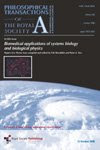I came across this paper refering to post WWII relationships between Government and Science and thought I would give it a mention, a recommendation, if such is required.
If readers have comments to add this and all sage catelogue is freely available for three or four more days, to 31Oct. 2009 ,
Malthus at mid-century: neo-Malthusianism as bio-political governance in the post-WWII
United States
Abstract:
"The paper provides a discursive history of neo-Malthusianism in the United States, focusing primarily on the mid-20th century. In the process, the author, K. Schlosser of the Dept. of Geography and Geology, West Kentucky Univ., critically examines texts invoking Malthusian arguments in relation to the politics of sex and birth control, class and eugenics, and race and geopolitics, focusing on how they rendered human population growth intelligible in particularly reductive and naturalistic ways. The purpose is to show how this history impinges upon the construction of population-resource theory after WWII, focusing specifically on William Vogt’s book, "Road to survival" and Fairfield Osborn’s book, "Our plundered planet." (both published in 1948)
Schlosser argues that the production and circulation of generalized models of population-induced conflict in the post-war United States was an important part of the nationalization and government harnessing of science in the name of national security, and relevant to post-war developmentalism and early Cold War containment doctrine. This helps us understand how neo-Malthusian discourse has been deployed as a form of bio-political governance.
en référence à : Malthus at mid-century: neo-Malthusianism as bio-political governance in the post-WWII United States -- Schlosser 16 (4): 465 -- Cultural Geographies (afficher sur Google Sidewiki)More comments and refs.
I. "Faifield Osborn (President of the New York Zoological Society) has written out of his conviction that unless public opinion is aroused, and the proper conservation of the natural and human resources of every country regarded as a moral duty, then the Earth's fertility cannot continue to sustain her rising population. No nation in the long history of civilisation has been more violently destructive of its life-supporting resources than the United States of America - that "country of the great illusion", the country that "can feed the world"! But the problem is worldwide. Fundamental to the troubles not only of nations like China and India, but of all nations, is the misuse of the land by their people; in parts of Russia, in the British Commonwealth, in South America, Mexico, the process is taking place which has made the deserts of Central Asia and Mesopotamia.
Henry Fairfield Osborn,Jr
II. Originally in French then translated to English with Google Assited Translator:
a) About this book, Albert Einstein is quoted as saying : " While reading this book, the futility of most of our political quarrels compared with the deeper realities of life, is acutely felt."
b)For Jacques Grinevald, (1948- ) Bio in FR. [Interdisciplinary Science and Ecology] this is "A book which shows an epoch: it is the beginning of the new age of ecology throughout the world. A cry of alarm, after the Second World War, too quickly forgotten. F. Osborn cites the idea that man has become a new geological force. (...) This is the first generation of ecological disaster, after Hiroshima. "
(In The Biosphere of the Anthropocene, Geneva, 2008, p.101.)
De ce livre, Albert Einstein dit : « On sent d’une façon aiguë en lisant ce livre la futilité de la plupart de nos querelles politiques comparées avec les réalités profondes de la vie ». Pour Jacques Grinevald, c'est "Un livre-manifeste qui fait époque : c’est le début du nouvel âge de l’écologie à l’échelle du monde. Un cri d’alarme, au lendemain de la Deuxième Guerre mondiale, trop vite oublié. F. Osborn cite l’idée que l’homme est devenu une nouvelle force géologique. (...) C’est la première génération du catastrophisme écologique, après Hiroshima." (In La Biosphère de l'Anthropocène, Genève, 2008, p.101.)









No comments:
Post a Comment
Comments, questions and/or suggestions welcome. If I can be of further, more focused assistance, do not hesitate-ask. Comments are moderated to assist further enquiry and assistance.